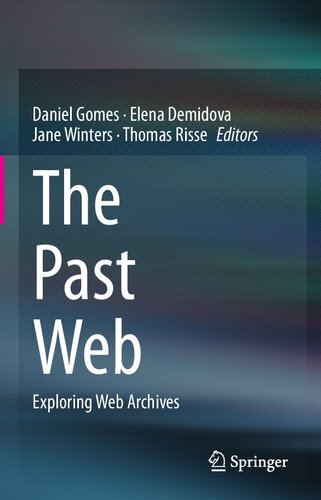

Most ebook files are in PDF format, so you can easily read them using various software such as Foxit Reader or directly on the Google Chrome browser.
Some ebook files are released by publishers in other formats such as .awz, .mobi, .epub, .fb2, etc. You may need to install specific software to read these formats on mobile/PC, such as Calibre.
Please read the tutorial at this link: https://ebookbell.com/faq
We offer FREE conversion to the popular formats you request; however, this may take some time. Therefore, right after payment, please email us, and we will try to provide the service as quickly as possible.
For some exceptional file formats or broken links (if any), please refrain from opening any disputes. Instead, email us first, and we will try to assist within a maximum of 6 hours.
EbookBell Team

0.0
0 reviewsThis book provides practical information about web archives, offers inspiring examples for web archivists, raises new challenges, and shares recent research results about access methods to explore information from the past preserved by web archives.
The book is structured in six parts. Part 1 advocates for the importance of web archives to preserve our collective memory in the digital era, demonstrates the problem of web ephemera and shows how web archiving activities have been trying to address this challenge. Part 2 then focuses on different strategies for selecting web content to be preserved and on the media types that different web archives host. It provides an overview of efforts to address the preservation of web content as well as smaller-scale but high-quality collections of social media or audiovisual content. Next, Part 3 presents examples of initiatives to improve access to archived web information and provides an overview of access mechanisms for web archives designed to be used by humans or automatically accessed by machines. Part 4 presents research use cases for web archives. It also discusses how to engage more researchers in exploiting web archives and provides inspiring research studies performed using the exploration of web archives. Subsequently, Part 5 demonstrates that web archives should become crucial infrastructures for modern connected societies. It makes the case for developing web archives as research infrastructures and presents several inspiring examples of added-value services built on web archives. Lastly, Part 6 reflects on the evolution of the web and the sustainability of web archiving activities. It debates the requirements and challenges for web archives if they are to assume the responsibility of being societal infrastructures that enable the preservation of memory.